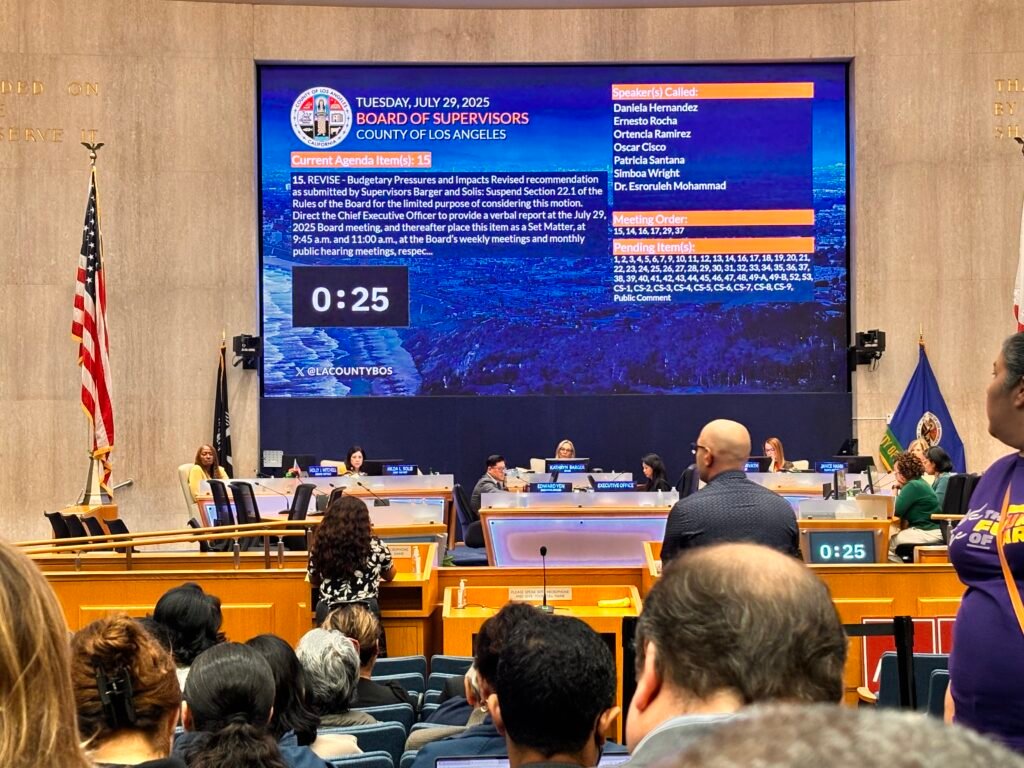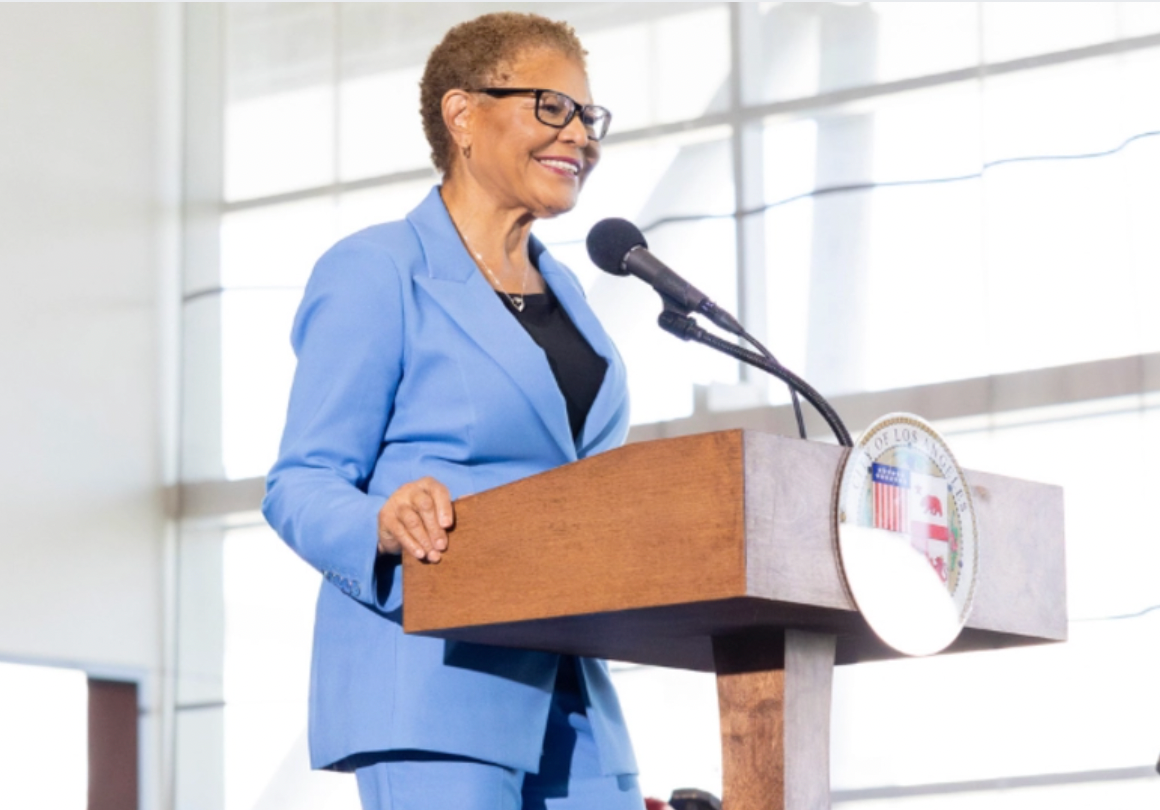By Isabell Ortega
As the County faces a budgetary crisis, Los Angeles County Board of Supervisors Chair Kathryn Barger announced yesterday that the Board will now receive weekly updates on the County’s fiscal health and the implications of curtailments during their regularly scheduled Board meetings.
The County’s Chief Executive Officer, Fesia Davenport, will deliver the updates as part of a new standing agenda item to provide real-time insight into budget impacts and promote transparency as the County navigates ongoing fiscal challenges.


“Understanding the County’s financial standing in real time is critical for us to make responsible, informed decisions,” said Barger. “This process reinforces our commitment to transparency and accountability during a time when every dollar counts even more than before.”
The announcement came as the County faces a challenging fiscal climate with multi-billion-dollar pressures on several fronts, including recovery costs of the January wildfires exceeding $1 billion, and the $4 billion settlement to resolve about 6,800 claims of sexual abuse within its juvenile facilities and foster care system.
This settlement stems from lawsuits filed by individuals who alleged abuse occurred in various facilities, including juvenile halls and MacLaren Children’s Center, dating back to 1959. The settlement resulted from a 2020 California law(AB 218) that allowed victims to bypass the statute of limitations.
Expected additional revenue shortfalls include $714 million through the fiscal year 2027-28, stemming from President Trump’s recently passed “Big, Beautiful” spending bill. Other foreseen fiscal challenges include slower property tax growth and labor contract negotiations.
During yesterday’s presentation, Davenport highlighted escalating losses for departments, including at the Department of Health Services, the Department of Public Social Services, and the Department of Mental Health.
The CEO emphasized that these impacts cannot be absorbed without action and that planning must begin for potential curtailments such as layoffs, hiring freezes, and program reductions.
Davenport said the AB 212 settlement will require 3% cuts to the Departments of Parks and Recreation and Justice, Care, and Opportunities.
Davenport said this means shorter park hours, a reduced swim season, and cutbacks in the Park’s After Dark program. It also means an end to college and career programs at community colleges and reduced support for justice-involved individuals.
Davenport said 5.5% cuts are also needed to fund the costs of negotiated labor agreements. These cuts will come from Parks and Recreation, Probation, Beaches and Harbors, Animal Care and Control, Economic Opportunity, and Public Health.
Barger said the weekly updates would clarify the County’s fiscal health.
“By establishing a weekly budget update from our CEO, we are creating an opportunity for our Board and–most importantly, the public–to stay fully informed about the County’s fiscal health and the financial realities we must now face,” Barger said.















